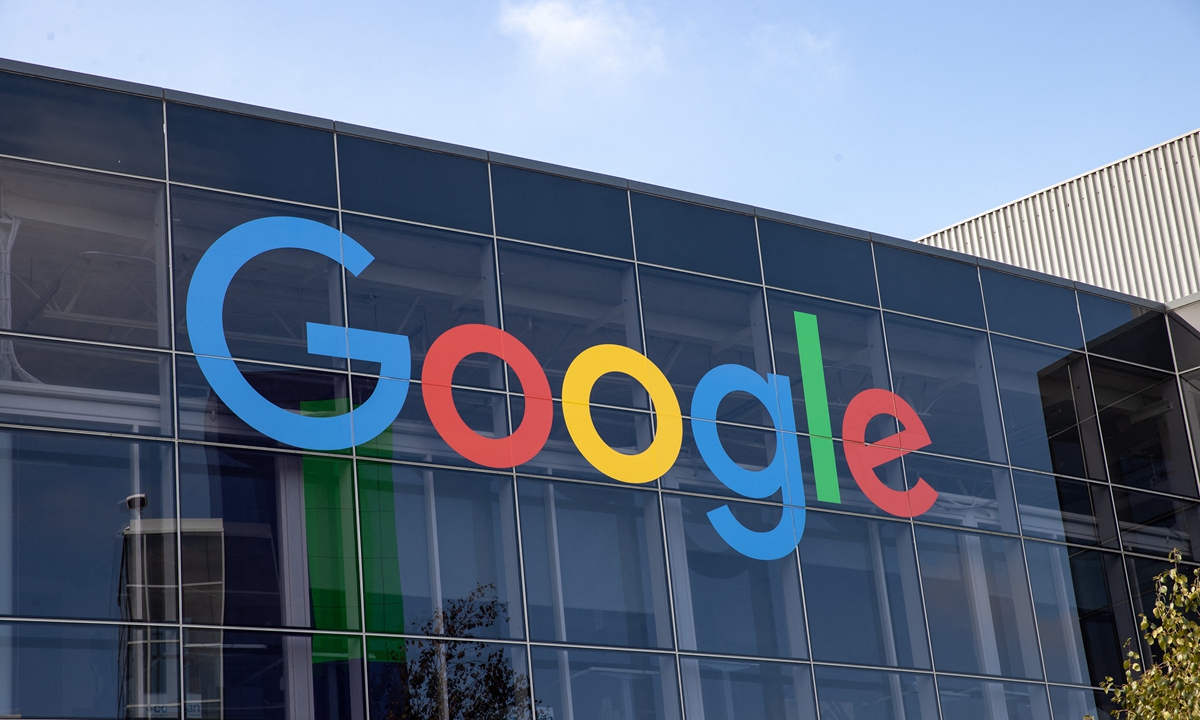
Photo:IC
As Google has refused to replace a pro-secessionism song in its search results for "Hong Kong national anthem" with the correct Chinese national anthem, the tech giant once again demonstrates its arrogance against China, its willingness to serve as a political tool, disregarding the legitimate jurisdiction of a sovereign nation.The Hong Kong Special Administrative Region (HKSAR) government is frustrated by a series of incidents in which the wrong Chinese national anthem was played, or the wrong anthem title was displayed, at some sporting events involving Hong Kong players. It contacted Google, asking the company to display the correct anthem in the top search results, but the latter refused with an excuse that search results were generated by an algorithm with no human input.
On Tuesday, Hong Kong Chief Executive John Lee Ka-chiu stressed that Google has the "moral obligation" to remove the wrong national anthem from top searches. "We take it very seriously because the national anthem represents a country, it represents the people, it represents dignity," he said. Lee promised that he would continue pressuring Google to make the change.
As a technological product, the algorithm itself clearly works mechanically. It doesn't understand the boundaries in international relations or the sanctity of sovereignty. But experts told the Global Times that algorithms can obviously be influenced by human behaviors - unlike what Google claims.
In fact, the final result of any algorithm can be and, to some extent, needs to be corrected manually. Google, as a company with great influence in today's world, should not deviate its service from adhering to basic principles and common understandings under the excuse of some "mechanical reasons."
To recognize that "Hong Kong's national anthem" is the "March of the Volunteers" is to acknowledge that China has legitimate sovereignty over Hong Kong, which is undoubtedly in line with the consensus and principles generally agreed upon by the international community.
Therefore, Google has an obligation to provide users with true and accurate information. It needs to present the world with the facts that Hong Kong is not an independent country, that Hong Kong does not have its own national anthem, and that the only correct "Hong Kong national anthem" should be the "March of the Volunteers."
Shen Yi, a professor at the School of International Relations and Public Affairs of Fudan University, believes that if Google displays incorrect search results, then it proves that the company either behaves irresponsibly by allowing the internet to be flooded with false information, or sympathizes with Hong Kong secessionist forces and promotes their claims.
Moreover, Google has shown its "two faces." On Monday, Hong Kong's security chief Chris Tang Ping-keung criticized Google's refusal, saying such a claim was unbelievable. Tang also pointed out that the company represented a clear double standard because it accepted the EU top court's ruling last Thursday that Google had to delete incorrect search results if the person making the request can prove that the information is clearly wrong.
Although the "right to be forgotten" supported by the EU juridical body and what the HKSAR government wanted are not the same, a contrasting attitude can be witnessed by Google. While the company "welcomed" the EU's decision, it didn't even try to pretend to be cooperative with the Hong Kong authority. It simply denied the city government's request categorically and stuck to its perception unreasonably.
Google's stance reflects the company's ideology and values, which are biased against China. As a tech company, Google already has its own political will and a particular ideological preference. It uses its technological capability to intervene in political affairs.
Google has its own criteria for judging when or whether to intervene in the algorithm. Still, such standards are entirely wrong and toxic if they disregard the sovereignty of other countries, undermine their territorial integrity, and weaken the most basic principles that most parts of the world agree on.
Google's refusal aims to hijack the international community with its own standards to serve some malicious political agenda for itself and even for the White House. As Google acts as an increasingly powerful weapon in the US public opinion warfare against China, the company has increasingly betrayed its original intention.



